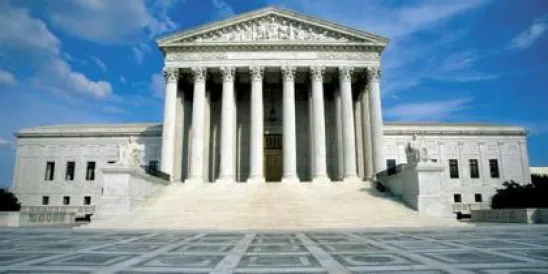In Janus Capital Group, Inc. v. First Derivative Traders, the U.S. Supreme Court established a bright-line test that strictly limits the ability of plaintiffs to sue secondary actors under the federal securities laws. To state a claim under section 10(b) of the Securities Exchange Act, the defendant must have “ultimate authority” over an allegedly false statement, or the statement must be publicly attributed to him. The Supreme Court has made it clear that a third-party professional who drafts someone else’s public statement cannot be sued for primary violations of the securities laws.
Previously, in Central Bank of Denver v. First International Bank of Denver and Stoneridge Investment Partners, LLC v. Scientific-Atlanta, Inc., the Supreme Court had prohibited aiding and abetting claims against third parties who did not make any misleading public statements. In Janus, the Supreme Court rejected the plaintiffs’ efforts to avoid Central Bank and Stoneridge by phrasing their claims as “primary” rather than “aiding and abetting” claims. This is the third strike against the plaintiffs’ bar, and it essentially closes the book on private third-party claims.
In Janus, the plaintiffs alleged that Janus Capital Group (“JCG”) and Janus Capital Management (“JCM”) made false statements in mutual fund prospectuses filed by Janus Investment Fund, for which JCM was the registered investment advisor and administrator. While JCG formed the Janus Fund, it was governed by an independent Board of Trustees and owned by the mutual fund investors. The district court dismissed the plaintiff’s complaint, finding that the shareholders could not sue JCM for statements in the Janus Funds’ prospectuses. The Fourth Circuit reversed the district court, holding that “by participating in the writing and dissemination of the prospectuses, JCM ‘made the misleading statements contained in [those] documents.’”
In a 5-4 decision split along ideological lines, the Supreme Court reversed the Fourth Circuit. The key issue before the Court was whether a third party can be held liable for “making” a materially false statement or omission in connection with the purchase or sale of a security. The Court found that JCM did not “make” the statements in the Janus Fund prospectuses, even though it was significantly involved in preparing them. Therefore, there was no private right of action against JCM.
Writing for the majority, Justice Thomas stated:
[T]he maker of a statement is the person or entity with ultimate authority over the statement, including its content and whether and how to communicate it. Without control, a person or entity can merely suggest what to say, not “make” a statement in its own right. One who prepares or publishes a statement on behalf of another is not its maker. And in the ordinary case, attribution within a statement or implicit from surrounding circumstances is strong evidence that a statement was made by—and only by—the party to whom it is attributed.
Justice Thomas analogized to the relationship between a speechwriter and a speaker, explaining: “Even when a speechwriter drafts a speech, the content is entirely within the control of the person who delivers it. And it is the speaker who takes credit—or blame—for what is ultimately said.”
The Court emphasized that it was drawing a “clean line” distinguishing “between those who are primarily liable (and thus may be pursued in private suits) and those who are secondarily liable (and thus may not be pursued in private suits).” The Court succinctly stated that “the maker is the person or entity with ultimate authority over a statement and others are not.”
Applying this test, the Court concluded that while JCM may have been involved in drafting the Janus Funds’ prospectuses, it did not “make” any of the statements because the prospectuses were “subject to the ultimate control” of the Janus Funds. The Court rejected the argument that the "uniquely close relationship" between JCM and the Janus Funds should intertwine the entities for Rule 10b-5 purposes. The Court explained that "[a]ny reapportionment of liability in the securities industry in light of the close relationship between investment advisers and mutual funds is properly the responsibility of Congress and not the courts.”
The Impact of Janus
The Supreme Court has made it abundantly clear that it “will not expand liability beyond the person or entity that ultimately has authority over a false statement.” In the aftermath of Central Bank and Stoneridge, the plaintiffs’ bar made a series of attempts to recast their third-party claims, using concepts like “scheme” liability and an expansive definition of who should be deemed a “primary” violator. In Janus, the Supreme Court slammed the door on these efforts. While one should never underestimate the creativity of the class action plaintiffs’ bar, they now have little to work with. In the aftermath of Janus, third-party service providers such as banks, accountants, lawyers and financial advisors have strong arguments that they simply are not proper defendants in private securities actions under section 10(b).
Importantly, the Court refused to defer to the SEC’s “broad view” of Rule 10b-5, which may have implications in SEC enforcement proceedings. For years, the SEC has taken a very broad view of who may be primarily liable under Rule 10b-5, frequently arguing that those who create alleged false statements may be held primarily liable even when they did not make the public statement. Although Janus addressed private litigants rather than SEC claims, the Court’s rejection of the SEC’s expansive arguments concerning primary liability may provide SEC defense attorneys with a powerful new tool in defending SEC investigations and suits.




 />i
/>i

